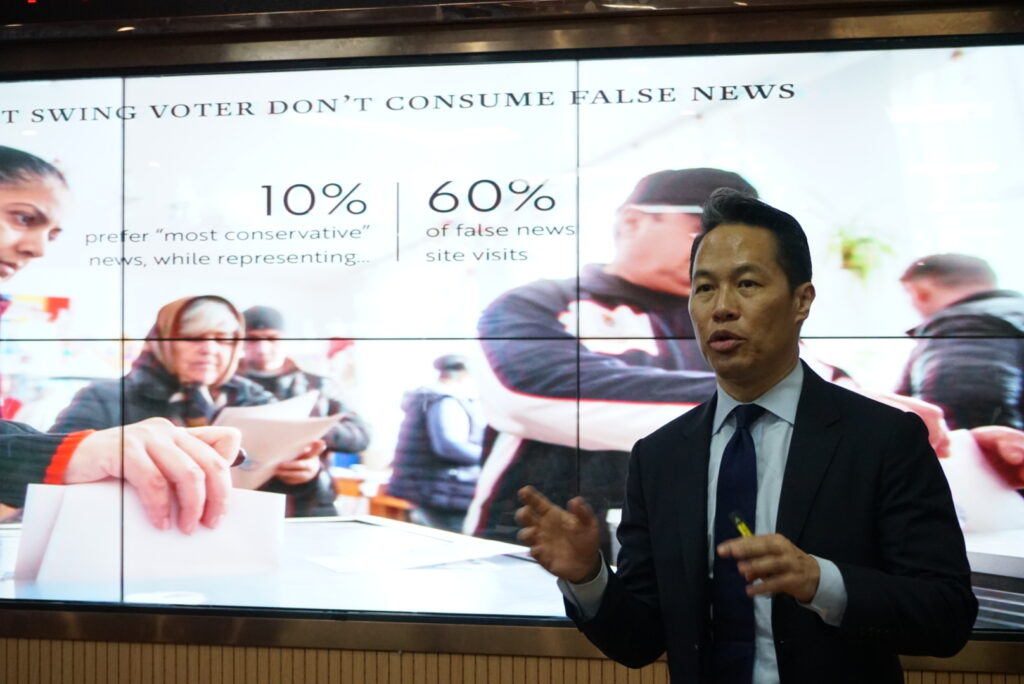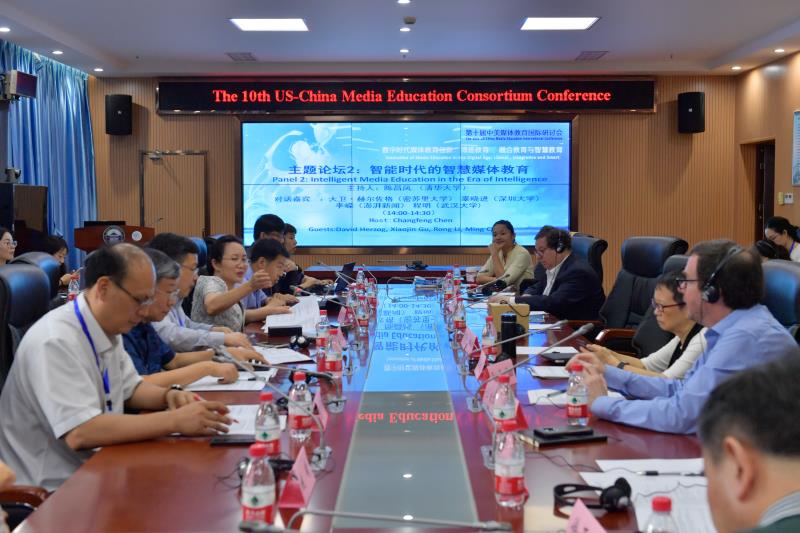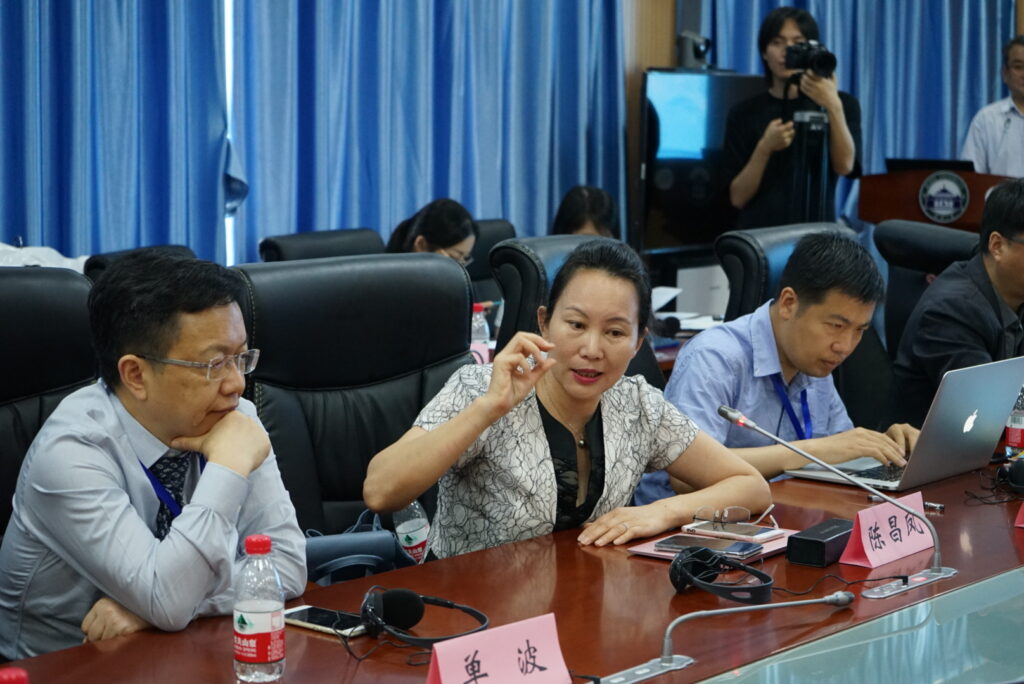“Some in journalism may say we are in the middle of a storm, that we are in the middle of understanding which way is up, which way is down, which way is left or right.” NBC News’ Richard Lui emphasized these words time and time again during his keynote speech at USCET’s 10th US-China Media Education Consortium Conference held at Wuhan University from June 20th to the 21st. The world is changing in ways that would have appeared unimaginable only a decade ago, as the sheer amount of data and information permeating society balloons to greater heights. The “mainstream” media, many claim, have lost their monopoly on truth, with the slide towards a so-called “post-truth” order gaining speed each year. In times like this, good journalism becomes more than just a way to present the news, it becomes a force to ground society in a shared belief – that facts are facts, and truth is truth.

USCET joined with Wuhan University to recognize the vital importance of professional journalism, co-hosting this year’s MEC Conference centered on a theme of “Innovation of Media Education in the Digital Age: Liberal Education, Integrative Education and Smart Education.” The sponsors invited leading names in journalism from China and US alike: American experts flying in from the University of Missouri and Hong Kong University; Chinese scholars from Tsinghua University, Fudan University and Shenzhen University, and industry experts from NBC, ThePaper.cn, and Tencent. Over fifty people participated in the conference, ensuring that the MEC conference served as a platform not only for theoretical academic discussion, but for educators, students and industry insiders from across the MEC to build personal connections.
USCET’s Media Education Consortium is the keystone of USCET’s media programming, connecting almost 40 Chinese schools of journalism and communications through conferences, hands-on workshops and networking opportunities, as well as acting as a platform for sharing innovation and best practices in media education and practices.

Ten years ago, the very first MEC Conference was held at Wuhan University, beginning a long journey on the path of excellence in media education. Since then, journalism as a field has been turned on its head, revolutionized by accelerating trends in technology and information culture. Survival now means adaptation, and those media professionals best attuned to a changing world will be the ones to lead it. USCET is fortunate to partner with forward-thinking Chinese media leaders such as Shan Bo, Ministry of Education Changjiang Scholar and the Director of Wuhan University Center for Studies of Media Development. Alongside USCET’s founding president Ambassador Julia Chang Bloch, Shan Bo gave the conference’s opening remarks as well as introducing his newest book, Going with the Flow: Interdisciplinary Readings for Communication Studies.
The conference itself revolved around seven keynote speeches and three panel discussions, with topics ranging from “Media, Technology and Entrepreneurship” to “Meeting New Requirements: Journalism Education Reform in the Digital Age.” Each panel was built on a foundation of inter-cultural dialogue, with Chinese and American panelists sharing best practices in a relaxed and free-flowing conversation about the future of media. As University of Missouri’s David Herzog said during a panel, “intelligence is the ability to go ahead, make changes and re-learn how to do things.” This year’s MEC was certainly a process of re-learning, as leaders in journalism from the two nations shared their successes, failures, and most of all, their visions for a media future that is more transparent and honest.

Much discussion centered on the so-called “fake news” phenomenon in the wake of the United States’ 2016 election, with panelists conversing about how best to build public trust in the media at a time when any individual might leverage social media to claim authority on topics of political or economic importance. For Richard Lui, this is a matter of weathering a temporary storm that will likely normalize once journalistic methods catch up to evolving technologies. Journalism, Lui says, is a ship that can “tossed, but not toppled.”
Other panels dealt with more practical topics, with conversations often revolving around how best to integrate traditional teaching methods with the new demands of the media industry. Hong Kong University’s Yuen-Ying Chan, founder of HKU’s Journalism and Media Studies Centre, offered insights on how Chinese journalism educators can best integrate online and offline learning with minimal resources. At this conference, Chinese speakers openly gave credit to US universities for providing innovative ways to structure journalism education programs in China. Shenzhen University’s School of Communication curriculum is modeled, for example, on the University of Missouri Method. Participants concluded that innovative journalism education will require more than simply stacking new programs onto traditional structures. Preparing the next generation of Chinese journalists, instead, will require rethinking every facet of the classroom and newsroom.
As the conference came to a close, professor Shan Bo and Ambassador Bloch delivered closing remarks on the importance of the MEC in fostering the very sort of US-China media ties that will prove essential in the coming years, followed by the Ambassador presenting certificates and awards to the presenters, panelists and hosts, commemorating the 10th year since USCET and Wuhan University first came together in hosting the Media Education Consortium Conference. As the weekend made clear, journalism is a pursuit of shared truth, and the dedication of Chinese and American media educators towards bringing this shared truth to light is not just a matter of telling stories, it’s a way to lend a voice to the voiceless and enabling meaningful change at a worldwide scale.
For more pictures, please click on this link.
